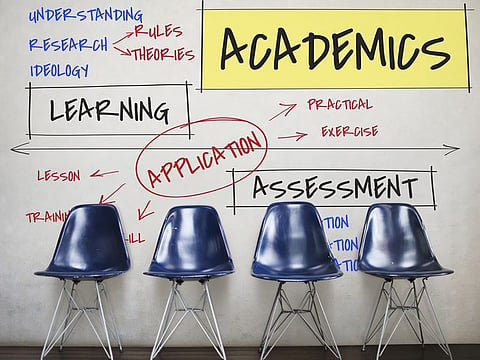How to bridge the gap between learning and assessment
A look at some of the best ways to test student learning and performance

Assessment is central to the teaching and learning process in the classroom. Not only does it measure students’ achievement and progress, it also helps them understand their own strengths and limitations, and how to improve their performance.
Good schools pay a great deal of attention to improving the quality of their assessment practices. They also adopt a whole-school policy for assessment, ensuring that whatever system is used to assess students, it has an impact on the quality of teaching and learning across the school and is understood by teachers, students and parents.
Good schools pay a great deal of attention to improving the quality of their assessment practices. They also adopt a whole-school policy for assessment, ensuring that whatever system is used to assess students, it has an impact on the quality of teaching and learning across the school and is understood by teachers, students and parents.

Schools use a number of different methods to assess their students, including formative assessment. This involves activities that are used primarily to help student learning by providing feedback during the learning process. This enables teachers and/or learners to modify teaching and learning activities to improve learning.
Well-designed and applied formative assessment has a significant positive impact on learners’ motivation and achievement. Effective classroom assessment should be based on the following fundamentals:
Relevant
Classroom assessment should relate directly to the learning objectives and the course and syllabus standards.
Appropriate
It should give the information that is required. Teachers will almost certainly need to use a variety of methods to assess different assessment criteria and learning objectives.
Fair
It should assume that all learners can make progress, regardless of their starting point, and provide them with the opportunity to demonstrate what they know, understand and can do.
Reliable
It should provide an objective and accurate check of learners’ skills, knowledge and understanding at the point of assessment.
Informative
It should establish where learners are in their learning. This information should then be used to diagnose what each learner needs to improve and how the teacher can support this.
Integrated
Assessments should be integrated into the lesson and the teaching and learning cycle, so that students and teachers reflect on the learning that has taken place before moving on.
By following these principles when designing formative assessment, learners will develop a clear understanding of what they are learning, as well as the standards towards which they are working. Frequent discussions about how students’ work meets the assessment criteria, together with clear and specific feedback, will help students understand how they learn and what they need to do to improve.
— The writer is Regional Director (MENA) for Cambridge Assessment International Education


